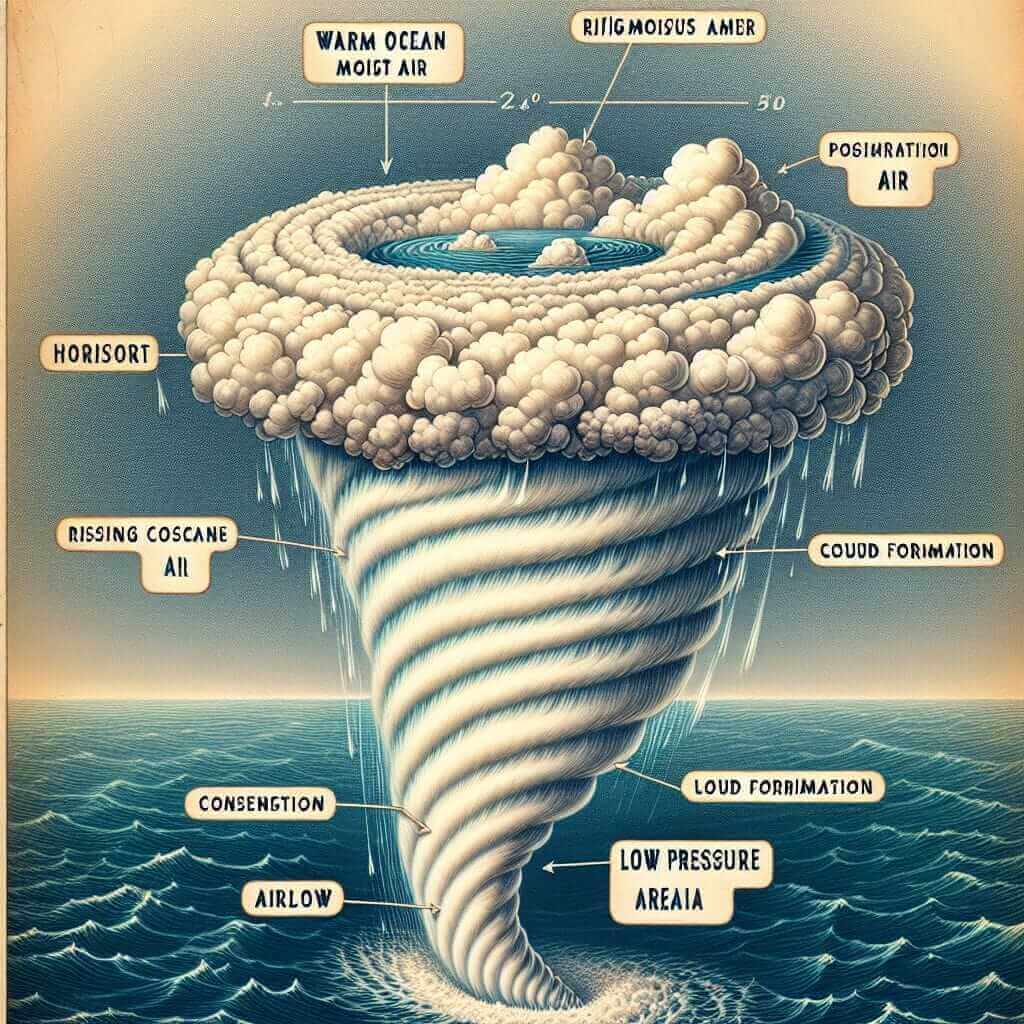Introduction: Discussing Natural Disasters in IELTS Speaking
The IELTS Speaking test assesses your ability to communicate effectively in English on a variety of topics. Natural disasters, such as hurricanes, are a common theme. You might be asked to describe a hurricane, discuss its impact, or even explore potential solutions to mitigate its effects. One intriguing question that often arises is: “Can hurricanes be moderated or diverted?” This article will delve into this complex topic, equipping you with the necessary vocabulary and ideas to confidently tackle this question in your IELTS Speaking test.
Understanding the Science Behind Hurricanes
To effectively answer questions about hurricane modification, it’s crucial to understand the basic science behind these powerful storms. Hurricanes are fuelled by warm ocean water and moist air. As warm, moist air rises and cools, water vapor condenses, forming clouds and releasing heat. This cycle creates an area of low pressure, drawing in more air and fueling the hurricane’s growth. Understanding this process provides a foundation for discussing potential intervention methods.

Exploring Potential Methods of Hurricane Modification
Cloud Seeding
One proposed method for weakening hurricanes is cloud seeding. This technique involves introducing substances, like silver iodide, into the storm clouds. Theoretically, these particles provide “seeds” around which water vapor can condense, potentially disrupting the hurricane’s internal structure and reducing its intensity. However, the effectiveness of cloud seeding remains a topic of debate among scientists.
Altering Ocean Temperatures
Since hurricanes draw energy from warm ocean water, some researchers have proposed manipulating ocean temperatures to weaken these storms. Ideas include using large pumps to bring cooler water from the depths or using reflective materials to reduce surface heating. While these concepts are theoretically intriguing, the sheer scale and potential environmental consequences make them highly challenging to implement.
Diverting Hurricane Paths
The idea of diverting a hurricane away from populated areas has also been explored. Some proposals involve using lasers or microwaves to alter the storm’s path. However, the immense energy required and the potential for unintended consequences make such interventions highly speculative and unlikely to be viable in the foreseeable future.
Addressing the Ethical and Practical Considerations
While the idea of controlling hurricanes might seem appealing, it’s important to consider the ethical and practical implications.
- Unintended Consequences: Tampering with a complex system like a hurricane could have unforeseen and potentially disastrous consequences.
- Ethical Concerns: Who gets to decide which areas are protected and which are potentially sacrificed by diverting a hurricane?
- Cost and Feasibility: The scale and cost of implementing any large-scale hurricane modification project would be astronomical.
IELTS Speaking Tips: Discussing Hurricanes
- Use specific vocabulary: Demonstrate your knowledge by using terms like “eye wall,” “storm surge,” “Saffir-Simpson scale,” and “landfall.”
- Present a balanced view: Acknowledge both the potential benefits and drawbacks of hurricane modification.
- Support your claims: Provide reasons and examples to back up your opinions.
- Don’t be afraid to speculate: While it’s important to be realistic, you can also discuss hypothetical scenarios and future possibilities.
Conclusion
While the idea of moderating or diverting hurricanes is captivating, the reality is far more complex. While scientists continue to explore potential methods, the immense power of these natural disasters and the ethical considerations involved mean that effective and safe solutions remain elusive. As an IELTS candidate, demonstrating your understanding of these complexities and your ability to articulate a balanced viewpoint will showcase your critical thinking and communication skills, which are highly valued in the IELTS Speaking test.